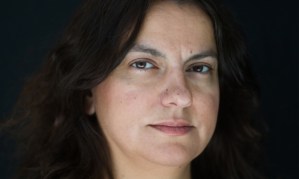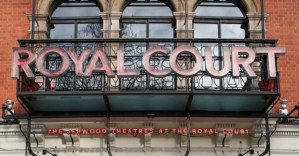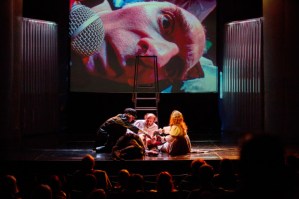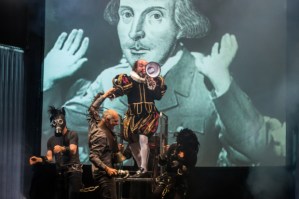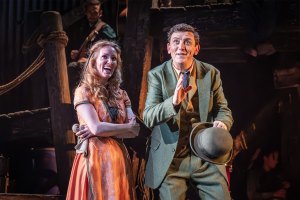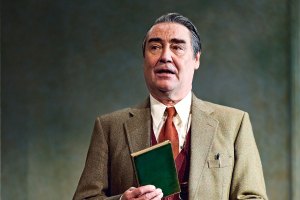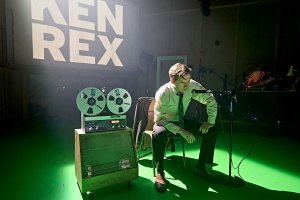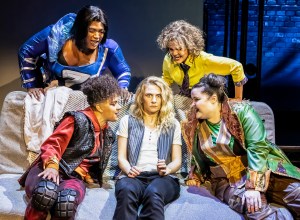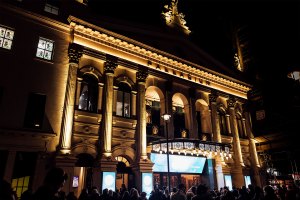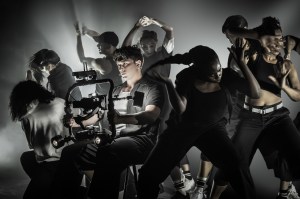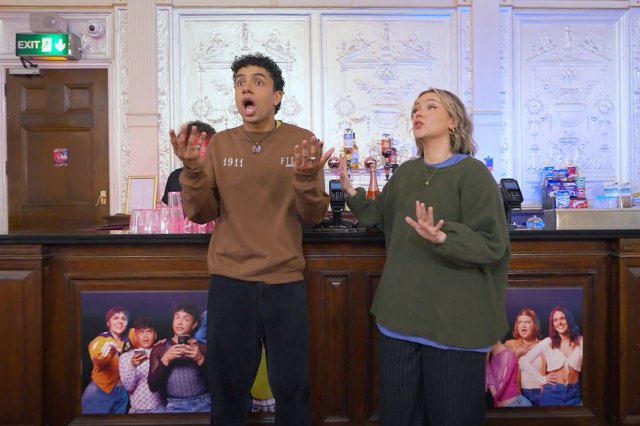Tim Crouch: I have cried almost every day in Beginners rehearsals
The writer and director explains the inspiration and ideas behind his new show ”Beginners”
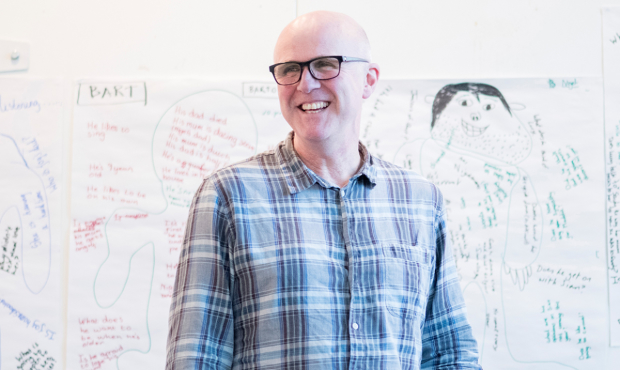
(© Camilla Greenwell)
Despite the old children and animals edict, theatremaker Tim Crouch is having the time of his life. When we meet he’s in the middle of rehearsing his newest play Beginners, and is trying to direct eight kids – two teams of four, which will make up almost half of the cast of the piece each night at the Unicorn. He describes them ‘like a tornado’ as they come up the stairs to rehearsal and they certainly are full of beans as Crouch stands in the middle of the rehearsal room smiling at them and trying to coax them into a scene. It’s not the first time Crouch has worked with children – there were two in ''Adler and Gibb'' at the Royal Court, more in his rough cut John, Antonio and Nancy. The latter had kids playing Gordon Brown, Nick Clegg and David Cameron’s kids speak their words around the General Election and is an example of the fearless playfulness Crouch invests in his work. Ever the theatrical explorer, his work refuses to be pinned down easily. With this new piece, he involves children again, to form a fundamental part of the piece, which is for ages nine to adult. Here he explains a little bit more about the extraordinary concept behind Beginners.
Your work is usually very playful formally. Are you able to give me a sense of what Beginners is about?
Often with my plays I can go: This, this is what it’s about. But it’s not like I have a simple [explanation for Beginners]. I know it’s about death, transition and loss, and a future, and being on a threshold.
And it starts with adult actors?
There are five actors, they are ostensibly the characters in the play, they arrive, in what could be a detention centre, or somewhere non-described. There are children onstage at times in this play and the adults can’t see them. What you begin to understand as the play unfolds is that these children are the analogues of the characters that the actors are playing – a bit like Philip Pullman’s daemons. They are the real thing. The adults are playing nine to ten year-old children but they are playing them like adults. Slowly over the course of the play the adults are substituted by children.
That sounds a little complicated…
It sounds more complicated than it actually is. Once you get the rules, as the audience, I think it’s like having your tummy rubbed. In a way the inspiration for this play was my dislike of actors pretending to be children, so that mustn’t happen in this play because we have real children to do that for us. In Beginners there’s a meditation on adulthood through the eyes of children and there is a meditation on childhood through the eyes of the adults.
So why have adult actors play children?
In my work I’m always trying to make one thing represent something else. And I’m always excited when the thing doesn’t need to look like the thing it is representing. In Beginners, I go a step further and bring the thing they are representing onstage and then the thing they are representing takes over.
Has this differed from your previous works?
The last 20 minutes are unlike anything I’ve ever done. There is a formal shift in the piece, it’s a bit like Adler and Gibb. It was written at the same time roughly. It is perhaps the most complete piece of work I’ve written in terms of its conceptual and its narrative connection. It wrote quite quickly which is usually a good sign, there’s a lot of psychology in it, which is unusual for me. Also, I’ve never thought of using dry ice before.
You use dry ice in Beginners?
The last section is a total theatrical transformation. We have someone fly, Chloe Lamford and Camilla Clarke have been working on iridescent bees which swarm across the stage. We are making huge props. We’ve been inspired a lot by Wes Anderson’s Rushmore.
And have rehearsals – with two sets of four kids – been fun?
They are tiring. But I love it. I have cried almost every day in rehearsals, which is unusual for me. It might be that there’s lots of stuff coming out for me. I’m about to have an empty nest with my kids leaving home, my mum died this year after being ill for a long time. So there’s a sense of where have the children gone in my life? And where has the child gone in me. I think of myself as an adult and as my parents die, I ask who is becoming the next, the last generation, all that stuff.
There has been quite a few pieces for young audiences featuring child casts recently, do you think theatre for young people has changed a lot recently?
It’s sad that Purni Morell is leaving the Unicorn, but she has transformed this building. It seems to be taking young audiences very seriously, and there’s a European influx with things like the Hamilton Project, Adler and Gibb played here. In my solo stuff I am on a mission to make work for young people treated seriously. Respected as seriously as work for adults.
And it’s a different way of getting children to perform onstage…
I am resistant to the stage school thing. I am writing to try to explore what a child performing would be about. I don’t want them to be Matildas, their child-ness is part of the form. That’s the distinction with all these new shows, their irreducible child-ness is what I want to work with.
What’s next?
I’m having the time of my life. I’m working on a TV series – my first TV series, and I have three new plays commissioned next year.
Beginners runs at the Unicorn Theatre until 15 April.




